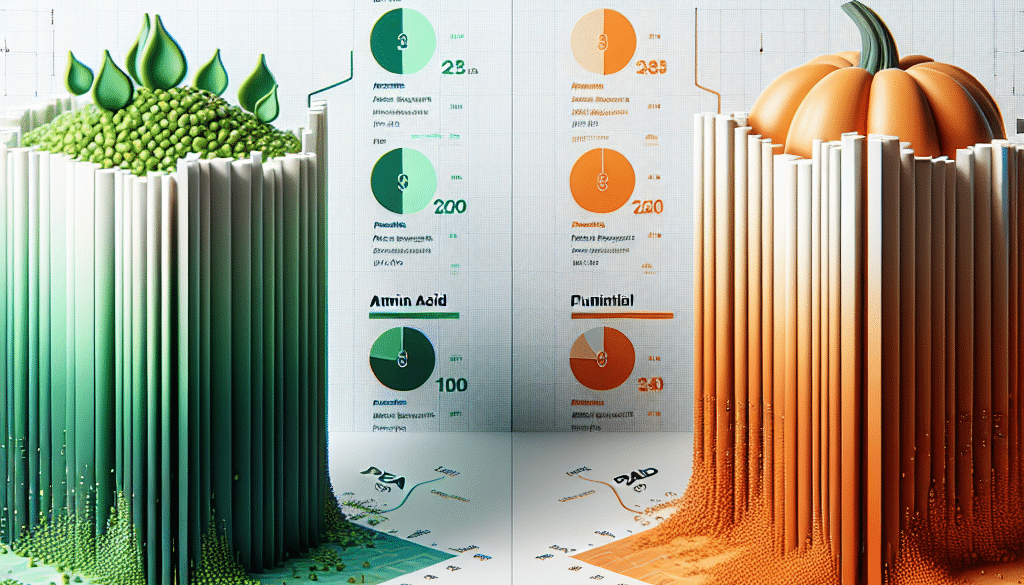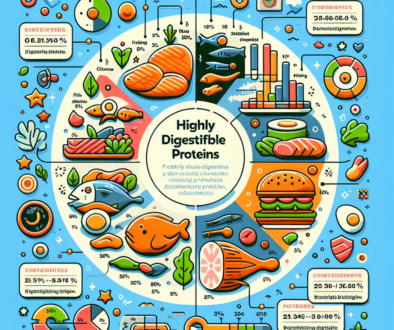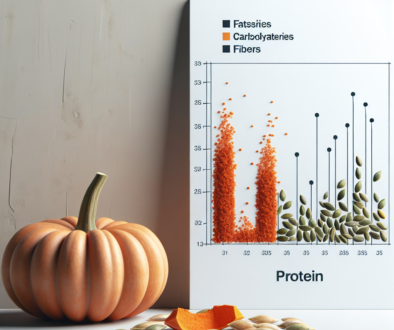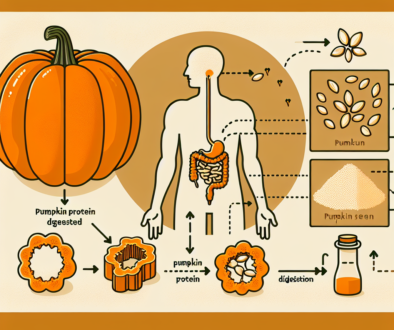Is Pea Or Pumpkin Protein Better?
-
Table of Contents
- Pea vs. Pumpkin Protein: Which Plant-Based Powerhouse Prevails?
- Nutritional Showdown: Pea Protein vs. Pumpkin Protein
- Digestibility and Allergen Considerations
- Environmental Impact and Sustainability
- Flavor, Texture, and Culinary Uses
- Health Benefits and Potential Drawbacks
- Case Studies and Research
- Conclusion: Making the Right Choice for Your Needs
- Discover ETprotein’s Premium Plant-Based Proteins
Pea vs. Pumpkin Protein: Which Plant-Based Powerhouse Prevails?
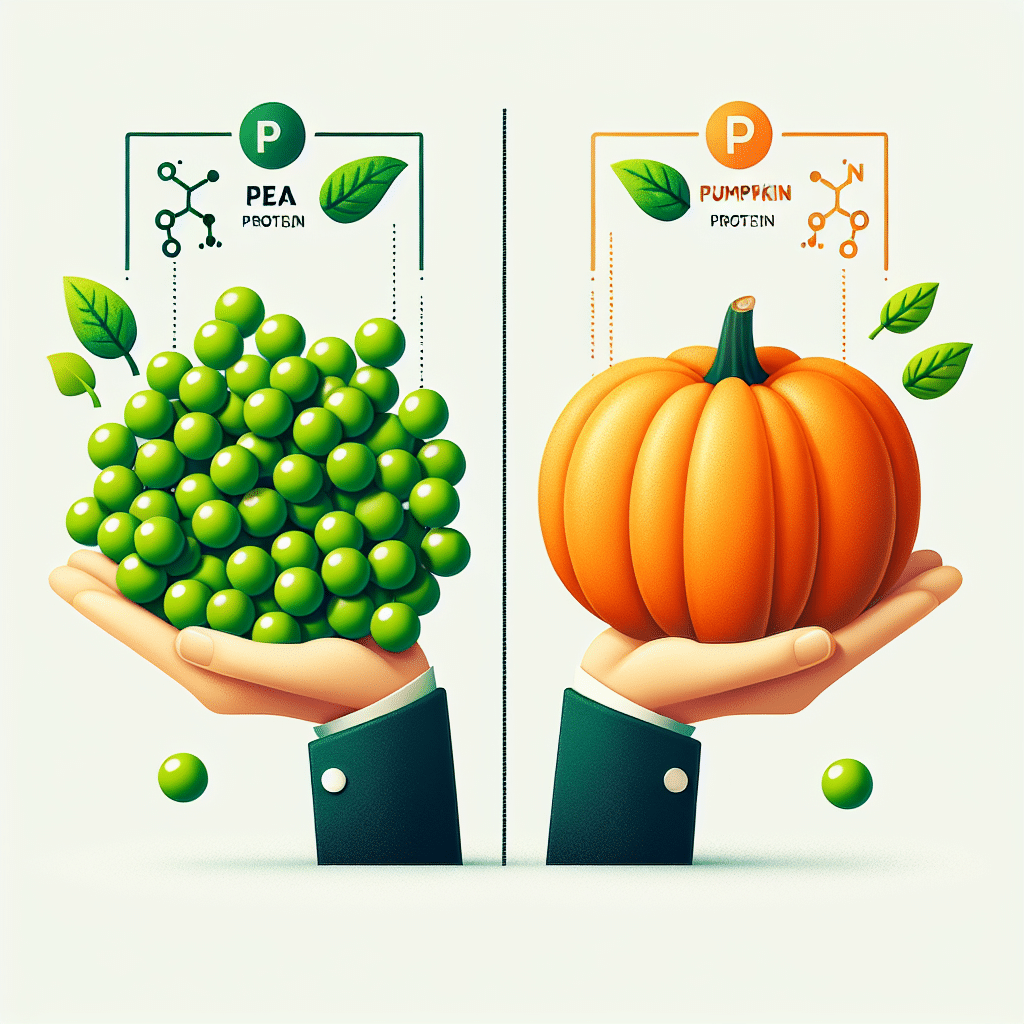
As the demand for plant-based nutrition continues to grow, consumers and fitness enthusiasts are often faced with the question: which plant-based protein is better for my health and fitness goals? Two popular contenders in the plant-based protein arena are pea and pumpkin protein. Both have unique nutritional profiles and benefits, but which one comes out on top? In this article, we’ll delve into the world of pea and pumpkin proteins, comparing their nutritional value, digestibility, environmental impact, and more to help you make an informed decision.
Nutritional Showdown: Pea Protein vs. Pumpkin Protein
When choosing a protein source, it’s essential to consider the nutritional content. Pea protein is derived from yellow split peas and is known for its high protein content and rich amino acid profile. It contains all nine essential amino acids, making it a complete protein, which is crucial for muscle repair and growth.
On the other hand, pumpkin seed protein is made from cold-pressed pumpkin seeds. It’s also a complete protein and is particularly high in magnesium, zinc, and healthy fats. While both proteins offer a good range of nutrients, pea protein typically has a slightly higher protein content per serving compared to pumpkin protein.
- Pea Protein: High in branched-chain amino acids (BCAAs), particularly arginine, which is beneficial for heart health and circulation.
- Pumpkin Protein: Rich in antioxidants and minerals, supporting immune function and overall health.
Digestibility and Allergen Considerations
Digestibility is a critical factor when it comes to protein powders. Pea protein is generally well-digested, with a digestibility score close to that of animal proteins. It’s also hypoallergenic, making it a safe choice for those with common food allergies.
Pumpkin protein is also easy to digest and is less likely to cause allergic reactions. However, it’s worth noting that some individuals might be sensitive to specific compounds found in pumpkin seeds.
Environmental Impact and Sustainability
The environmental footprint of our food choices is becoming an increasingly important consideration. Pea protein is often touted for its low environmental impact, as peas require less water and fertilizer compared to other crops. They also enrich the soil with nitrogen, reducing the need for chemical fertilizers.
Pumpkin seed protein is also an eco-friendly option. Pumpkins are robust crops that can grow in diverse climates and typically have lower pesticide requirements. The seeds are a byproduct of pumpkin harvesting, which means producing pumpkin protein can help reduce waste.
Flavor, Texture, and Culinary Uses
The taste and texture of protein powders can significantly influence their popularity. Pea protein has a mild, slightly earthy flavor and blends well into smoothies and shakes. It can also be used in baking and cooking without significantly altering the taste of recipes.
Pumpkin protein has a nuttier flavor and a grainier texture, which some people may find less palatable in smoothies. However, it can add a pleasant taste to baked goods and other dishes.
Health Benefits and Potential Drawbacks
Both pea and pumpkin proteins offer various health benefits. Pea protein can aid in muscle growth, weight management, and may have beneficial effects on heart health. Pumpkin protein is excellent for those looking to increase their mineral intake and can support prostate health due to its zinc content.
However, it’s essential to consider potential drawbacks. Some pea protein powders may contain added sodium or artificial ingredients, so it’s crucial to choose a high-quality, pure product. Similarly, pumpkin protein powders may have added sugars or fillers, so reading labels is vital.
Case Studies and Research
Several studies have highlighted the benefits of pea protein for muscle growth, comparable to whey protein, especially when combined with resistance training. Research on pumpkin protein is less extensive, but its high antioxidant content suggests potential benefits for reducing inflammation and oxidative stress.
Conclusion: Making the Right Choice for Your Needs
In conclusion, both pea and pumpkin proteins are excellent plant-based protein options with unique benefits. Pea protein may be slightly superior in terms of protein content and muscle-building potential, while pumpkin protein offers a unique nutrient profile with beneficial minerals and antioxidants. Ultimately, the best choice depends on your dietary preferences, nutritional needs, and environmental considerations.
Discover ETprotein’s Premium Plant-Based Proteins
If you’re looking for high-quality plant-based protein options, ETprotein offers a range of products to meet your needs. Their pea and pumpkin protein powders are organic, non-GMO, and allergen-free, ensuring you get the purest form of nutrition. With a commitment to sustainability and quality, ETprotein is the go-to source for your plant-based protein needs.
About ETprotein:
ETprotein, a reputable protein and L-(+)-Ergothioneine (EGT) Chinese factory manufacturer and supplier, is renowned for producing, stocking, exporting, and delivering the highest quality organic bulk vegan proteins and L-(+)-Ergothioneine. They include Organic rice protein, clear rice protein, pea protein, clear pea protein, watermelon seed protein, pumpkin seed protein, sunflower seed protein, mung bean protein, peanut protein, and L-(+)-Ergothioneine EGT Pharmaceutical grade, L-(+)-Ergothioneine EGT food grade, L-(+)-Ergothioneine EGT cosmetic grade, L-(+)-Ergothioneine EGT reference grade and L-(+)-Ergothioneine EGT standard. Their offerings, characterized by a neutral taste, non-GMO, allergen-free attributes, with L-(+)-Ergothioneine purity over 98%, 99%, cater to a diverse range of industries. They serve nutraceutical, pharmaceutical, cosmeceutical, veterinary, as well as food and beverage finished product distributors, traders, and manufacturers across Europe, USA, Canada, Australia, Thailand, Japan, Korea, Brazil, and Chile, among others.
ETprotein specialization includes exporting and delivering tailor-made protein powder and finished nutritional supplements. Their extensive product range covers sectors like Food and Beverage, Sports Nutrition, Weight Management, Dietary Supplements, Health and Wellness Products, and Infant Formula, ensuring comprehensive solutions to meet all your protein needs.
As a trusted company by leading global food and beverage brands and Fortune 500 companies, ETprotein reinforces China’s reputation in the global arena. For more information or to sample their products, please contact them and email sales(at)ETprotein.com today.

